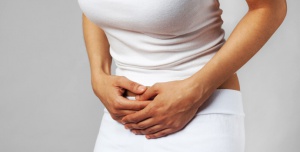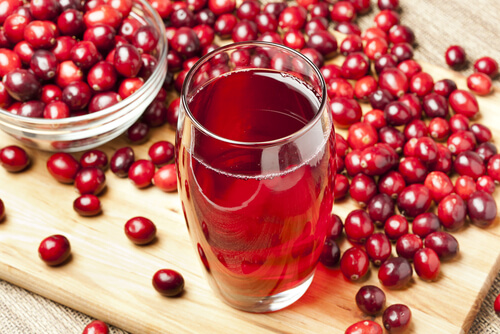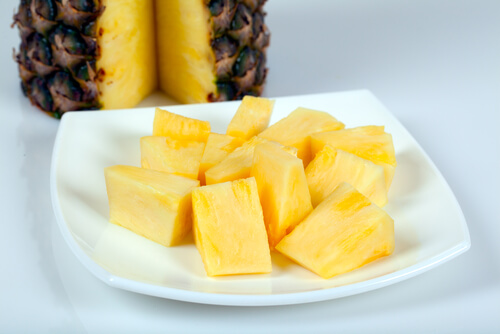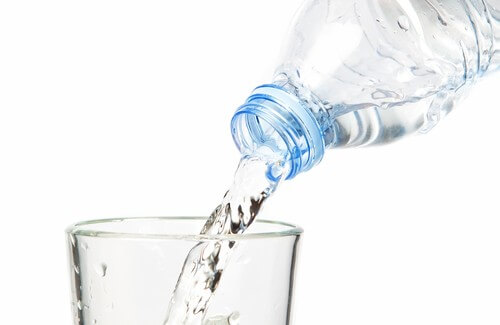6 Possible Home Remedies for Urinary Tract Infections

Urinary tract infections are the second most common reason why people go to the doctor every year. Men can get urinary infections, but they are much more common in women. Over eight million women go see their doctor due to them every year. And 20 percent of these women will have a second infection.
The good news is that there are many possible home remedies for urinary tract infections. We tell you about six of them in this article.
Possible home remedies for urinary tract infections
1. Baking soda
Urinary infections that last more than two days will require medical intervention. Untreated urinary infections can infect your kidneys and will turn into a much more serious problem.
To help reduce your chances of developing a urinary tract infection or help treat it from the start, you can add a teaspoon of baking soda to a glass of water. This may help relieve the infection. Baking soda may neutralize acid in your urine and thus accelerate recovery.
Read more here: How to Heal a Urinary Tract Infection Naturally
2. Whole cranberries

3. Cranberry juice
Many studies have found that drinking cranberry juice can help reduce your chances of urinary tract infections. It seems as though cranberry juice may reduce the bacteria that causes the infection and it also has a very mild antibiotic effect.
Drink 4 ounces of cranberry juice a day to help keep your bladder free from infection. But if you tend to have urinary infections or have one right now, try to drink at least 2 or 4 glasses of cranberry juice a day.
4. Pineapple

Bromelain is an enzyme that’s found in pineapples. In a study, people that had a urinary infection were given bromelain along with the usual round of antibiotics and this helped heal the infection. Eating a cup of pineapple will taste good and it may help eliminate your infection.
5. Vitamin C
Some doctors prescribe at least 5 g or more of vitamin C a day for patients that have recurring urinary tract infections. Vitamin C may help keep your bladder healthy by essentially acidifying urine because it may reduce the chances of potentially harmful bacteria entering.
Discover: What You Need to Know about Vitamin C Skin Products
6. Water

If you tend to get urinary tract infections, be sure to drink a lot of water: around 8 glasses a day. You should urinate at least every four or five hours.
If you’re currently dealing with an infection, drink water to help fight it. Drink a total of 8 ounces of water every hour. This may help you eliminate bacteria.
All cited sources were thoroughly reviewed by our team to ensure their quality, reliability, currency, and validity. The bibliography of this article was considered reliable and of academic or scientific accuracy.
- Vijayan, R.K. & Musthafa, Mohamed Essa & Al-Rawahi, Amani & Guillemin, Gilles & Subash, Selvaraju & Memon, M.A.. (2013). Blueberries and health benefits. Food as Medicine. 17-36.
- Popkin, Barry M et al. “Water, hydration, and health” Nutrition reviews vol. 68,8 (2010): 439-58.
- Blasco Loureiro,L.,Souto Moure, C., Marchena Fernández, M.A. (2016). https://web.archive.org/web/20100622232652/http://www.sefap.es/revista/pdf/4.1.4.pdfInfecciones del tracto urinario. Pautas de tratamiento empírico de la infección no complicada según los datos de sensibilidad antimicrobiana de un área de salud.
- Wurgaft, Andrés. (2010). Infecciones del tracto urinario. https://www.sciencedirect.com/science/article/pii/S0716864010705794
- VV.AA. (2016).Potential role of bromelain in clinical and therapeutic applications.https://www.ncbi.nlm.nih.gov/pmc/articles/PMC4998156/
- Liska, DeAnn J., Kern, Hua J., Maki, Kevin C. (2016).Cranberries and Urinary Tract Infections: How Can the Same Evidence Lead to Conflicting Advice?https://www.ncbi.nlm.nih.gov/pmc/articles/PMC4863270/
- Magginni, S., Carr, AC. (2017).Vitamin C and Immune Function. https://www.ncbi.nlm.nih.gov/pubmed/29099763
This text is provided for informational purposes only and does not replace consultation with a professional. If in doubt, consult your specialist.








